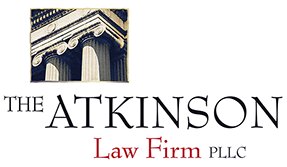Best Car Accident Lawyers in North Carolina
Share your needs with us, get contacted by law firms.
Free. Takes 2 min.
Or refine your search by selecting a city:
List of the best lawyers in North Carolina, United States
About Car Accident Law in North Carolina, United States
Car accidents are common on North Carolina roads and can involve anything from minor fender-benders to severe multi-vehicle collisions. Car accident law in North Carolina covers the legal responsibilities of drivers, the procedures for filing insurance claims, compensation for injuries and property damage, and the processes for determining who is at fault. North Carolina follows specific rules that can significantly impact your rights and the outcome of your accident claim. Understanding your options and obligations is crucial if you have been involved in a car accident within the state.
Why You May Need a Lawyer
While some minor car accidents can be handled through insurance claims without legal help, there are several situations where consulting a lawyer is important:
- Your injuries are serious or long-lasting.
- There is a dispute about who is at fault for the accident.
- The insurance company denies your claim or offers an inadequate settlement.
- The accident involved multiple parties or commercial vehicles.
- You are facing medical bills, lost wages, or other significant damages.
- There are questions about applying North Carolina’s unique contributory negligence rules.
- You feel pressured to give a recorded statement to the other driver’s insurer.
- A loved one died as a result of the accident, and you may have a wrongful death claim.
A car accident lawyer can help you navigate these challenges, protect your interests, and work toward fair compensation.
Local Laws Overview
Car accident claims in North Carolina are influenced by several key aspects of state law:
- Contributory Negligence: North Carolina is one of the few states using a strict contributory negligence rule. If you are found even 1 percent at fault for the accident, you may not be eligible to recover any damages from the other party.
- Mandatory Reporting: You must report accidents to law enforcement if they involve injury, death, or property damage of 1,000 dollars or more.
- Time Limits: You generally have three years from the accident date to file a personal injury or property damage lawsuit. For wrongful death claims, the deadline is two years.
- Minimum Insurance Requirements: North Carolina requires vehicle owners to carry minimum amounts of liability insurance to cover bodily injury and property damage.
- Uninsured and Underinsured Coverage: Drivers must also have uninsured motorist coverage, which helps if the at-fault driver does not have insurance.
- Comparative Fault Not Applied: Unlike most states, partial fault bars any recovery in North Carolina. This makes legal representation especially important.
Frequently Asked Questions
What should I do after a car accident in North Carolina?
Begin by ensuring your safety and calling 911 if anyone is injured. Exchange information with other drivers, take photos of the scene, and file an accident report if required. Notify your insurance company as soon as possible.
What is contributory negligence, and how does it affect my claim?
Contributory negligence in North Carolina means if you are found at fault in any way for the accident, you may be prevented from recovering compensation, even if the other party was primarily to blame.
How long do I have to file a car accident lawsuit?
For both personal injury and property damage, you have three years from the date of the accident to file a lawsuit. For wrongful death, the limit is two years.
Should I speak to the other driver’s insurance company?
It is best to consult with your own insurer and consider contacting a lawyer before giving any recorded statement or signing documents from the other party’s insurer.
What if I was partially at fault?
In North Carolina, any partial fault can bar you from receiving compensation. Even being 1 percent at fault may disqualify you from recovering damages from the other driver.
Can I recover damages if the at-fault driver is uninsured?
Yes, your own uninsured motorist coverage can help pay for your losses if the at-fault driver does not have insurance or if it was a hit-and-run accident.
What compensation may I be entitled to?
You may be able to claim damages for medical expenses, lost income, pain and suffering, property damage, and in some cases, punitive damages if the at-fault driver's behavior was egregious.
Do I have to go to court to resolve my car accident claim?
Most car accident claims are resolved through insurance settlements. However, if there is a dispute or inadequate offer, litigation may become necessary.
What if the accident involved a commercial vehicle or an out-of-state driver?
Claims involving commercial vehicles or out-of-state drivers often involve additional complexities and may require specialized legal assistance due to differing laws and insurance policies.
How can a lawyer help with my car accident claim?
A lawyer can help investigate your claim, handle negotiations, ensure critical deadlines are met, provide advice on state-specific legal issues, and represent your interests in court if necessary.
Additional Resources
- North Carolina Department of Insurance: Offers guides on auto insurance requirements and consumer rights.
- North Carolina Department of Transportation: Provides safety statistics, accident report forms, and traffic laws.
- North Carolina State Bar: Offers resources for finding qualified attorneys and legal aid.
- Legal Aid of North Carolina: Nonprofit organization that can help low-income individuals with civil legal issues.
- North Carolina Division of Motor Vehicles: Manages driving records, accident reports, and licensing.
Next Steps
If you have been involved in a car accident in North Carolina, it is important to act promptly:
- Seek necessary medical attention and follow your healthcare provider’s advice.
- Gather as much evidence as possible, including photographs, witness information, and police reports.
- Notify your insurance company about the accident without delay.
- Consult with an experienced North Carolina car accident lawyer if you have concerns about fault, insurance coverage, or your rights to compensation.
- Understand North Carolina’s contributory negligence rules and how they may affect your claim.
- Act within required legal deadlines to avoid losing your chance to pursue damages.
Before speaking with the other driver’s insurance company or accepting any settlement, consider seeking professional legal advice to help protect your rights and secure fair compensation for your injuries and losses.
Lawzana helps you find the best lawyers and law firms in North Carolina through a curated and pre-screened list of qualified legal professionals. Our platform offers rankings and detailed profiles of attorneys and law firms, allowing you to compare based on practice areas, including Car Accident, experience, and client feedback.
Each profile includes a description of the firm's areas of practice, client reviews, team members and partners, year of establishment, spoken languages, office locations, contact information, social media presence, and any published articles or resources. Most firms on our platform speak English and are experienced in both local and international legal matters.
Get a quote from top-rated law firms in North Carolina, United States — quickly, securely, and without unnecessary hassle.
Disclaimer:
The information provided on this page is for general informational purposes only and does not constitute legal advice. While we strive to ensure the accuracy and relevance of the content, legal information may change over time, and interpretations of the law can vary. You should always consult with a qualified legal professional for advice specific to your situation.
We disclaim all liability for actions taken or not taken based on the content of this page. If you believe any information is incorrect or outdated, please contact us, and we will review and update it where appropriate.
Browse car accident law firms by city in North Carolina
Refine your search by selecting a city.

















